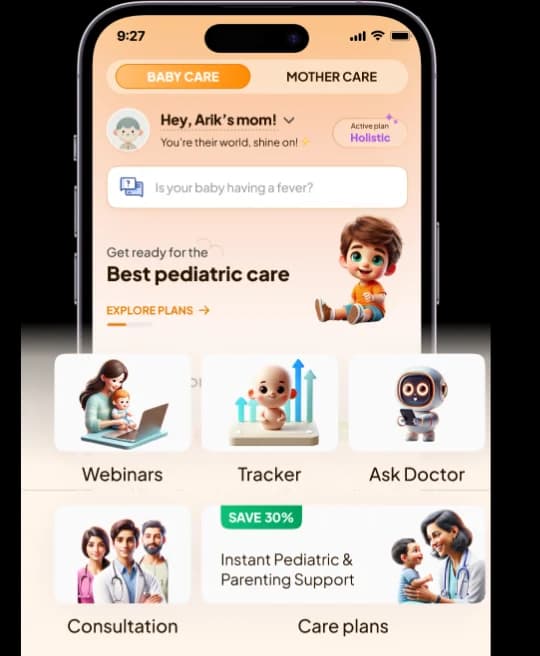
Vaccines can have rare major side effects like severe allergic reactions, seizures, or high fever, but their benefits outweigh the risks. Contact your healthcare provider if your child experiences vaccine-related side effects. Most side effects are mild and go away on their own.
Understanding the common and uncommon side effects can ease worries and vaccines are a safe and effective way to prevent serious diseases and keep your child healthy.
Vaccines: What Do They Do?
Vaccines work by getting the body ready to fight infection. Each one contains a disease-causing germ (or parts of one) that is either dead or weakened.
Antibodies are produced by the body to fight disease by recognizing specific parts of the germ. This long-term response means that if a person is ever exposed to the disease, the antibodies are already in place, the body knows how to fight it, and the person does not become ill.
Things To Be Considered Before Vaccination
- When you have an appointment for your baby's vaccine, keep the vaccination card with you at all times so that a proper record of the type of vaccine given and the date can be kept.
- Feed the baby well before the vaccination, as babies may develop a fever, become tired, or become cranky as a result of the vaccine, and will not be able to feed or eat properly when they return home.
Vaccine Symptoms in General
- All vaccines have the potential to cause mild irritability, crying, and restless sleep. A sore shot site is usually the cause of this.
- After immunization, babies may be restless or sleepy.
- Some kids sleep more than others. It's also common to have a decreased appetite and activity level.
- These signs and symptoms are common. There is no need to treat them.
- They usually disappear in 24 to 48 hours.
Reactions to Specific Immunization
